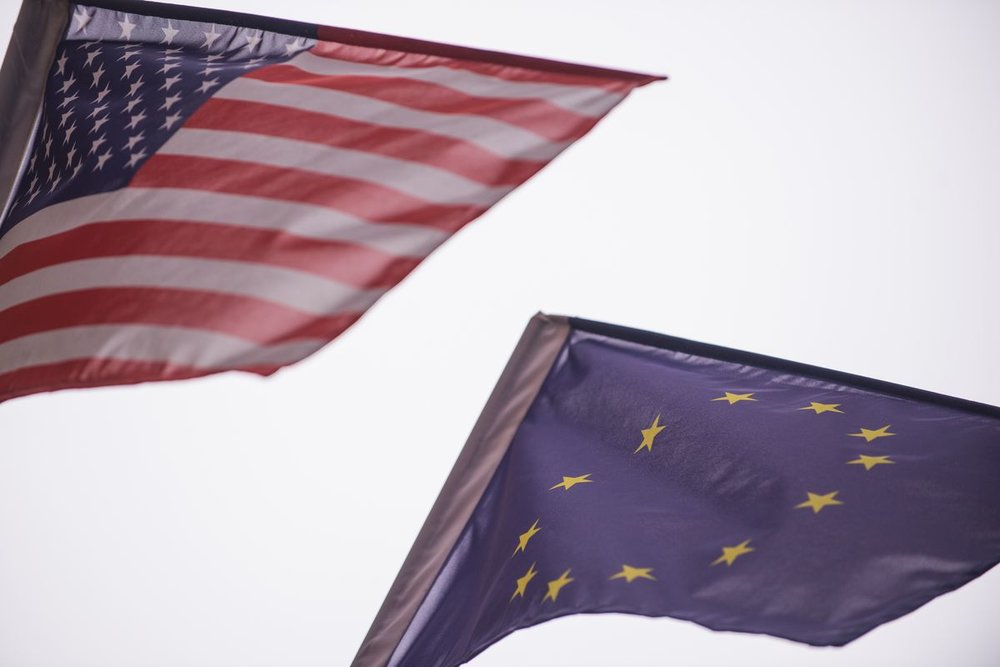Europe and U.S. in a trade standoff

U.S. President Donald Trump continues to pursue his protectionist policies in international trade system. This has led to raising concerns and serious discontent among the United States' European partners.
Many international analysts now talk about the conflicts between the United States and Europe over imposing sweeping steel and aluminum tariffs as a transatlantic "trade war". Conflicts that may extend in the near future and affect the widespread relations between Washington and Europe.
Though politicians such as Emmanuel Macron, Angela Merkel and Theresa May seek to manage the situation and prevent the exacerbation of tensions with Washington, but people, business owners and European opposition parties are so angry at Trump and the U.S. government that the European troika's authorities aren't capable to control or even hide it.
Under such circumstances, Europe has threatened to retaliate against the U.S. if Trump imposes steel and aluminum tariffs on European exports. After Trump made his first announcement on the tariffs, European Commission President Jean-Claude Juncker threatened to put tariffs on American goods in response to Trump’s decision. That could decrease demand for those products inside EU borders and consequently lead to U.S. workers losing their jobs.
The German Chancellor has recently sent an indirect but significant warning to Trump about his commercial measures. German Chancellor Angela Merkel said during her eleventh official visit to China that the United States should "permanently" exempt the EU from unfair steel tariffs. However, at least for now, it seems that Trump doesn't intend to retreat against his European partners. Of course, Trump may consider temporary exemptions for European partners in this regard, but there will be no permanent exemptions.
The German Chancellor stated that European Union member states must give the EU trade commissioner a clear mandate for negotiations with the United States over a long-term exemption from U.S. metal tariffs. Markel added: "Of course, we think it’s important that there are exemptions not only for a limited period of time … So far, we have had a very united stance, namely that we view these tariff demands as unjustified and that we want a long-term exemption.”
The fact is that Merkel's implicit threat, which she didn't address directly and explicitly because of her conservative policy towards the United States, is the same as the "European countermeasures" against the United States. Measures that at the lowest level, could include imposing tariffs on U.S. imported goods, and thus increasing the costs of exports for the United States. Though over the past months European officials have had intensive negotiations with the U.S. President on their permanent exemption from steel and aluminum tariffs, Trump has shown that he doesn't intend to easily retreat from his positions.
Indeed, the prolonged U.S.-EU talks on steel and aluminum tariffs is going to increase the dissatisfaction and anger among the European public opinion. It will also affect the performance of American companies in Europe. Many of the U.S. affairs analysts have warned that the implementation of conciliatory policies towards Washington at this period can't change the negative and deterrent economic measures of the Donald Trump's government; a warning that Angela Merkel, Immanuel Macron and Theresa May have overlooked in action.
